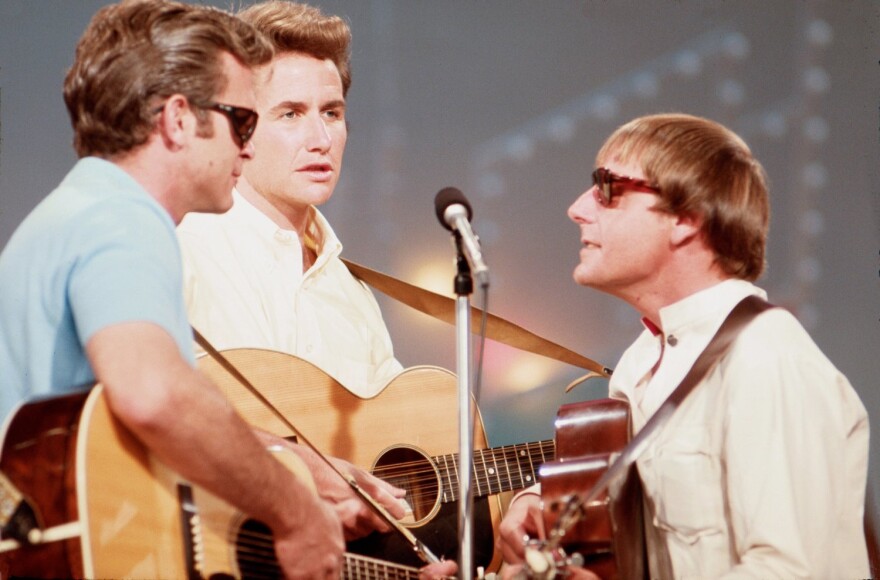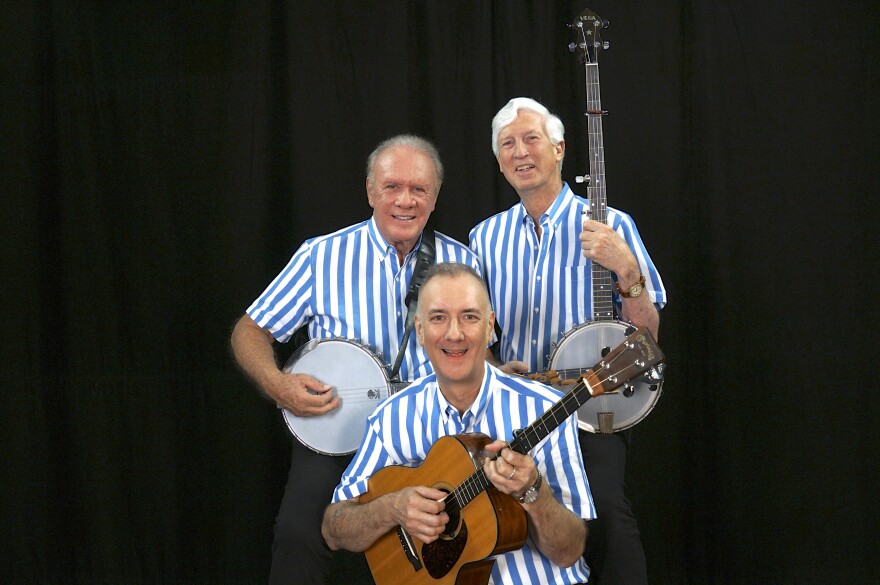The Kingston Trio is a legendary group that ushered in the folk music revival of the 1950s and 60s. While the original members are no longer living, the group continues to perform with new members who have ties to the original lineup.
One of them is Mike Marvin, the adopted son of founding member Nick Reynolds. He was a teenager when he became a part of the Reynolds family in the late 1950s, around the same time the Kingston Trio dominated the pop charts. In a recent interview with KAZU News, Marvin discussed the group’s California roots, their memory-making music, and what it was like to be there when the group topped the charts in the late-50s:
This interview has been edited for length and clarity.

Mike Marvin (MM): We never went out to eat. We couldn't sit at a table without a hundred people coming up and bothering Nick [Reynolds] about an autograph. That was my first realization that fame wasn’t all it was cracked up to be. Those guys were the Beatles of their day. They couldn’t go anywhere without getting mobbed
Dylan Music (DM): Since 2017, you’ve been a member of this incarnation of the Kingston Trio.
MM: We’ve played hundreds of concerts in the last five years. We have conga, bass, three or four guitars, two banjos…It’s the old Kingston Trio reincarnated.
DM: So the original Kingston Trio Has strong roots here in California and are responsible for the west coast folk revival sound of the late fifties, is that right?
MM: That is true. They were playing on the peninsula at a place called the Cracked Pot [a beer garden in Redwood City], while [original member] Dave Guard was going to school at Stanford and [original members] Nick Reynolds and Bob Shane were going to Menlo Business School. We’ve played all up and down the state, from Redding to San Diego, to San Francisco, to Santa Cruz, Santa Barbara.

DM: So we’ve got to talk about “Tom Dooley,” from 1958. It was a massive hit that kick-started the group’s career, reaching number one on Billboard, selling millions of copies. What can you say about “Tom Dooley”?
MM: First of all, the Kingston Trio was a show biz anomaly. In the late 1950s, radio music was dominated by Elvis [Presley], the Coasters and Ricky Nelson. The Kingston Trio stepped up with something completely out of left field. “Tom Dooley” was a “B” side recording on their very first album. A couple of disc jockeys in Salt Lake City picked up the album, started playing “Tom Dooley” and it pyramided out from Salt Lake City to other stations. People heard the song and started calling in and saying that they wanted to hear “Tom Dooley.” The next thing you knew, it was the number one hit in the United States.
DM: What’s your favorite Kingston Trio song to perform?
MM: “Where Have All the Flowers Gone?” A lot of these songs were hits at a seminal point in people’s lives. When people hear “Tom Dooley” or “Where Have all the Flowers Gone?,” they’re reminded of a place they were when they were 20 years old. Every now and then, somebody will come up with moist eyes and say, “Scotch and Soda” was the song that my husband sang when he proposed to me along the banks of the Seine in Paris in 1960. When you guys [performed] it tonight, it brought tears to my eyes. We get a lot of that. The music is poignant, compelling, and it’s great storytelling music. People seem to love it.
The Kingston Trio performs at the Rio Theatre in Santa Cruz on Thursday, August 11th at 7pm.


